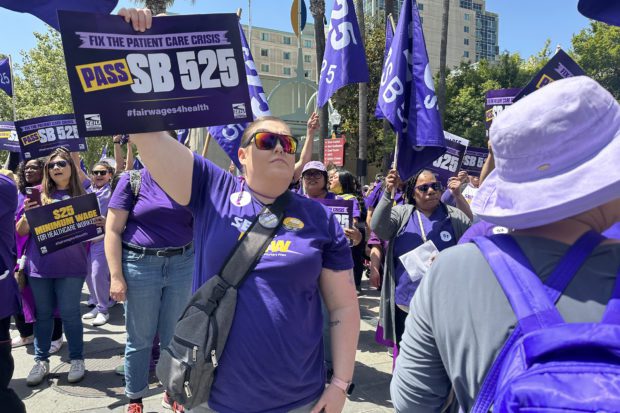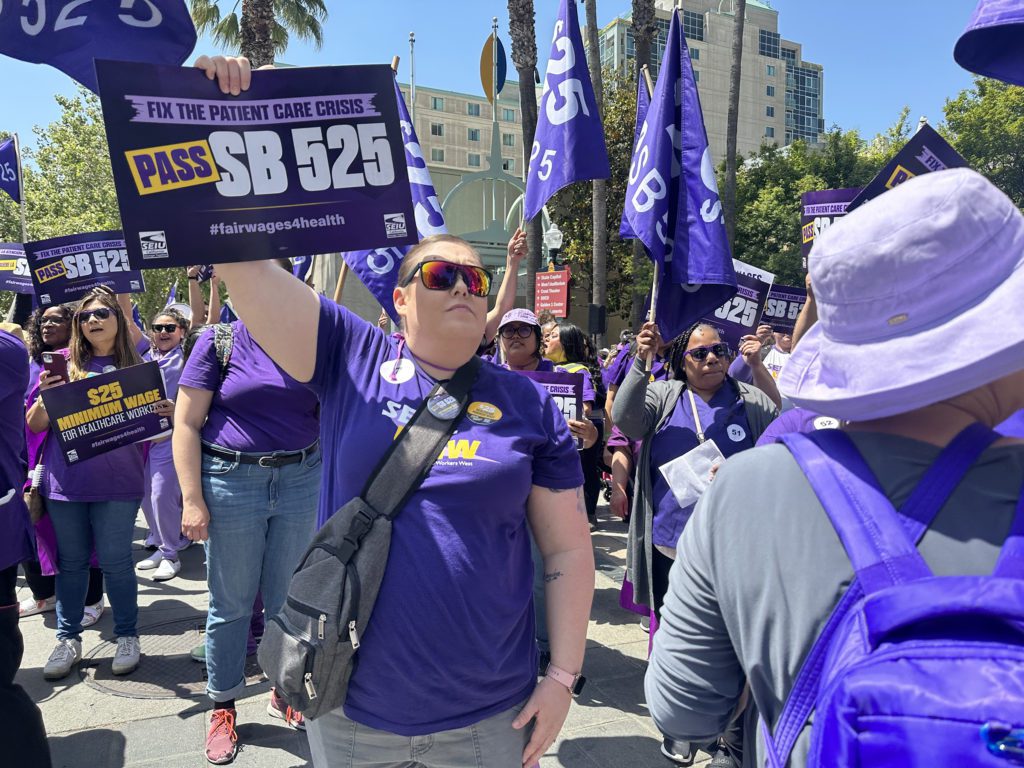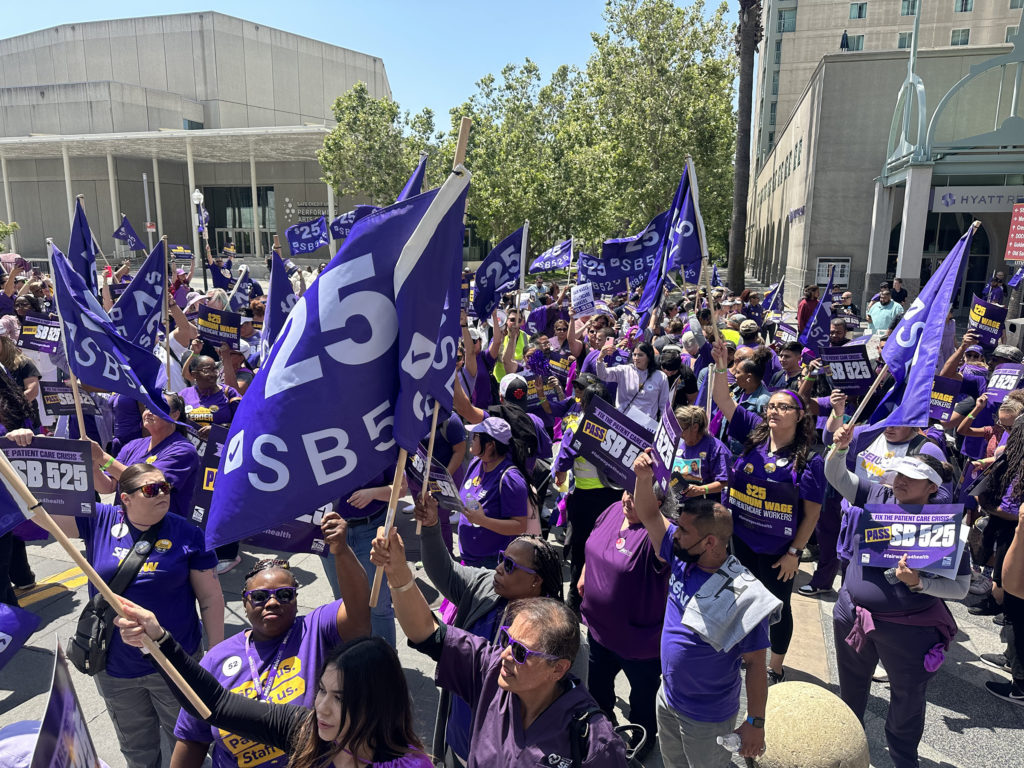

On May 25, a sea of purple engulfed the Capitol in Sacramento. More than 600 healthcare workers, medical assistants, home caregivers, clinic workers, resident physicians and patients wearing purple shirts and capes surrounded the State Capitol for a press conference and to march. This was an opportunity for patients and healthcare workers across California to express how important it is for SB 525 to pass.
The purple capes joined at the steps of the Capitol sharing their struggles and desires to continue taking care of their patients. Many of them shared similar stories: inability to cover their own bills and take care of themselves and families. Having to work multiple jobs just to keep their families fed. Sleeping in cars because of the commute and long hours. Not being able to afford to work.
Many spoke out about their experiences with burnout, and how there is too much to do and not enough trained employees to do it. They talked about the high turnover, watching their coworkers quit and understanding why. It wasn’t because of a lack of dedication, rather an inability to stay.
Teary-eyed healthcare workers insisted that passing SB 525 and properly paying healthcare workers would be an investment in the future of healthcare.
The State Senate has endorsed the $25 healthcare minimum wage bill. This new minimum wage is set to help fix many of the problems plaguing our healthcare system.

SB 525 would be the first ever statewide healthcare minimum wage and would help retain workers and attract new workers to the field.
We all know what a clinic is like. It often feels like an inconvenience rather than going somewhere that will make you feel better. Being left behind in the back by accident, not being called with your results, medicine being sent to the wrong place or not ordered, or appointments not being available for months at a time.
Patients are slipping through the cracks because there aren’t enough properly trained people staying long enough.
The term Great Resignation refers to the increased rate of U.S. workers leaving their jobs since the spring of 2021 due to the strong demand for labor and low unemployment rates. Healthcare is one of the sectors that has been hit the hardest. Healthcare workers feel overwhelmed with low staffing and high demand, making it less likely for people to stay on.
According to the study “Burnout and Health Care Workforce Turnover,” the “prevalence of burnout, low engagement and turnover were high, with 53% of both clinicians and staff reporting burnout, only 32% of clinicians and 35% of staff reporting high engagement, and 30% of clinicians and 41% of staff no longer working in primary care in the same system 2 to 3 years later…
“Primary care physicians have among the highest rates of burnout among physician specialties, with more than 60% of those in the United States.”
All healthcare workers deserve to make an honest living. They spend their days taking care of patients, but who is taking care of them? A $25 minimum wage would also help fight against discrimination in the workforce.
“Workers of color and women workers, who form the backbone of our healthcare system, are disproportionately underpaid and devalued. At every level of healthcare, underpaying and undervaluing essential health care workers has created a patient care crisis,” stated the Service Employees International Union (SEIU) in a statement to the media. SEIU represents a majority of the healthcare workers in California.
This bill would cover everyone working in clinics, no matter the position. That includes secretaries and even janitors. People would be able to focus on their jobs without worrying about their second/third jobs and falling behind. It would create a path toward dignity and respect for both healthcare workers and their patients.
On May 31, the bill passed the Senate with a 21-11 vote.
“California’s healthcare workforce crisis and the crisis in patient care are one and the same—I can’t cover two or three times my share of residents without staying up at night worrying that fragile elderly people in my care are more likely to fall, get an infection or suffer from feeling abandoned,” said Christina Lockyear-White, a certified nursing assistant at Bakersfield Rehabilitation Center and first vice president of SEIU 2015.
“I’m exhausted and heartsick from the physical and emotional stress, but with today’s victory, I’m even more optimistic that California’s leaders are hearing us and taking action.”
